During a cozy family dinner, Kate’s casual joke about her and Rebekah’s DNA test results unexpectedly opens a Pandora’s box of secrets, setting the stage for startling revelations that threaten to unravel the very fabric of their family.
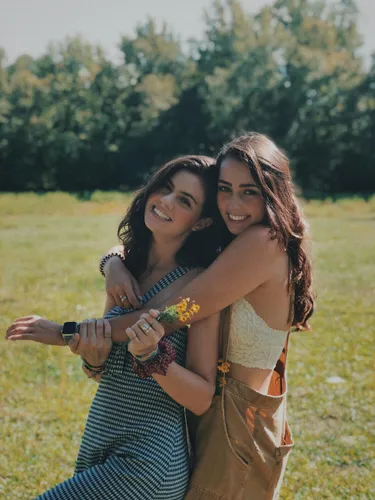
Two smiling women | Source: Pexels
Growing up, my sister Rebekah and I always took pride in our heritage. The stories of our great-grandfather living on a Native American reservation told and retold at every family gathering, were woven into the fabric of our family’s history.
His deep connection to his roots, his culture, and the stories of resilience and spirit had always been a source of pride for us.
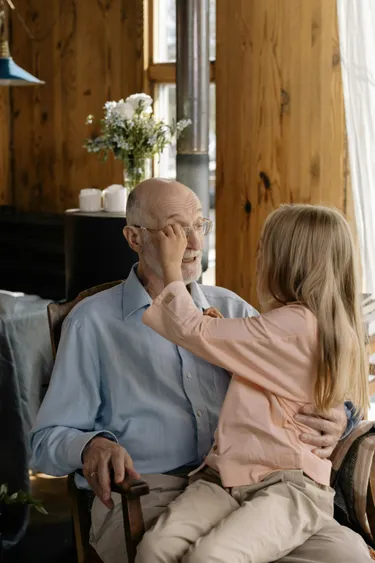
A girl touching her grandfather’s eyeglasses | Source: Pexels
As children, we’d sit cross-legged on the living room carpet, our eyes wide with wonder, as he recounted tales from his youth — the celebrations, the rituals, the deep sense of community. It was more than just history; it was a cherished legacy.
But as we grew older, skepticism crept in, spurred by our high school genetics class. Rebekah and I decided on a whim to take a DNA test, just for fun, never expecting the results to shake the very ground we stood on.
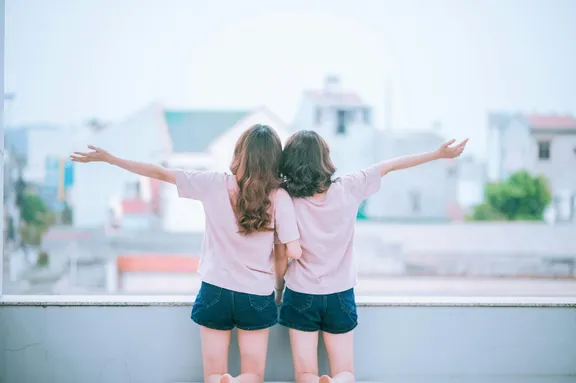
Two women wearing matching clothes on a balcony | Source: Pexels
The results came back with zero percent Native American ancestry. It was puzzling, but we shelved the confusion, chalking it up to scientific error.
This unresolved puzzle lingered in the back of our minds, surfacing again at our family dinner last month, which was held at our grandparents’ cozy, book-lined home.
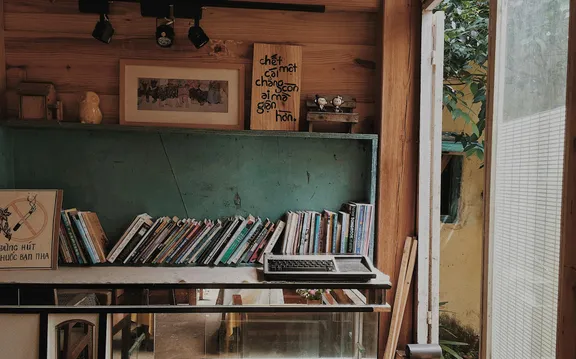
Books placed in a wooden rack on the wall | Source: Pexels
The air was thick with the aroma of roasted turkey and the warm, buttery scent of mashed potatoes. It was a typical scene: laughter filled the room, glasses clinked, and our grandfather’s stories added that familiar, comforting background hum.
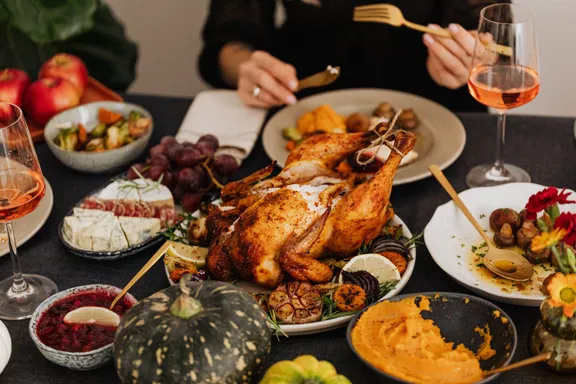
A roasted turkey on a white ceramic plate | Source: Pexels
In the midst of dinner, fueled by a playful mood and perhaps one too many glasses of wine, I tossed out what I thought was a light, humorous question to my mother. “So, Mom, when did you decide to bring home someone else’s children?” I chuckled, nudging Rebekah, expecting her to roll her eyes or laugh.
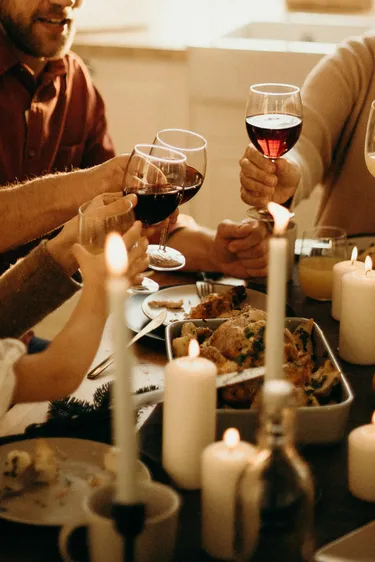
People holding wine glasses | Source: Pexels
The laughter died in my throat when I saw my mother’s face. Her fork dropped with a clatter. Silence descended like a thick curtain. My heart thudded ominously as she looked up, her eyes glistening with unshed tears.
In a voice barely above a whisper and trembling with emotion, she said, “Look, Kate. You have always been and will be my children. I loved you and raised you as my own.’”
The room felt suddenly too small, the walls inching closer. Rebekah and I exchanged a look of horror. What had begun as an innocent joke spiraled into a moment of raw, painful honesty.
In the silence that followed, Rebekah found her voice first. “We took a DNA test,” she admitted, her voice steady but low. “It showed 0% Native American. We thought… it was a mistake.”
The confession broke the last barrier of restraint in the room. What followed was a flood of truths that washed over our family with the force of a tidal wave.
My mother, with the courage of someone who has nothing left to lose, shared the painful details of her own discovery — she wasn’t biologically related to the man who raised her.
Her mother, our beloved grandmother, had kept a secret. Not even she knew until late in her life that she had been pregnant with another man’s child, a truth hidden from everyone, including the man she married.
This revelation, so many years later, fractured our family. There were tears, accusations, and a heavy silence that spoke volumes.
In the days that followed, our family seemed to unravel at the seams. Rebekah and I grappled with the identity we had lost and the new one we had to forge. Our relationship with our grandparents, once built on deep affection and respect, was now tinged with confusion and pain.
As we navigated this new reality, Rebekah and I learned to lean on each other more than ever. We tried to piece together a clearer understanding of our heritage and what it truly meant to be family, not bound by blood but by the countless days of shared experiences, every act of love, and every sacrifice made in the name of family.
Eventually, our family found a way to bridge the chasm that had opened among us. It wasn’t easy, and some wounds were slow to heal, but we learned to forgive and accept.
Our mother, our pillar of strength, taught us that family isn’t just about genetic ties. It’s about the people who raise you, who stand by you in your darkest moments, and who cheer for you in your successes.
At the next family dinner, quieter and more subdued than before, our grandfather took my hand. With a tearful smile, he simply said, “Blood or not, you’re my girl. Always have been, always will be.” And in his eyes, I saw not just forgiveness, but a reaffirmation of love — unconditional and enduring.
So, here I am, sharing our story not because it’s unique, but because it speaks to the truth of what makes a family. It’s not the DNA, not the blood that runs through our veins, but the love that we give and receive. That’s the true essence of family, and no test can define or destroy that.